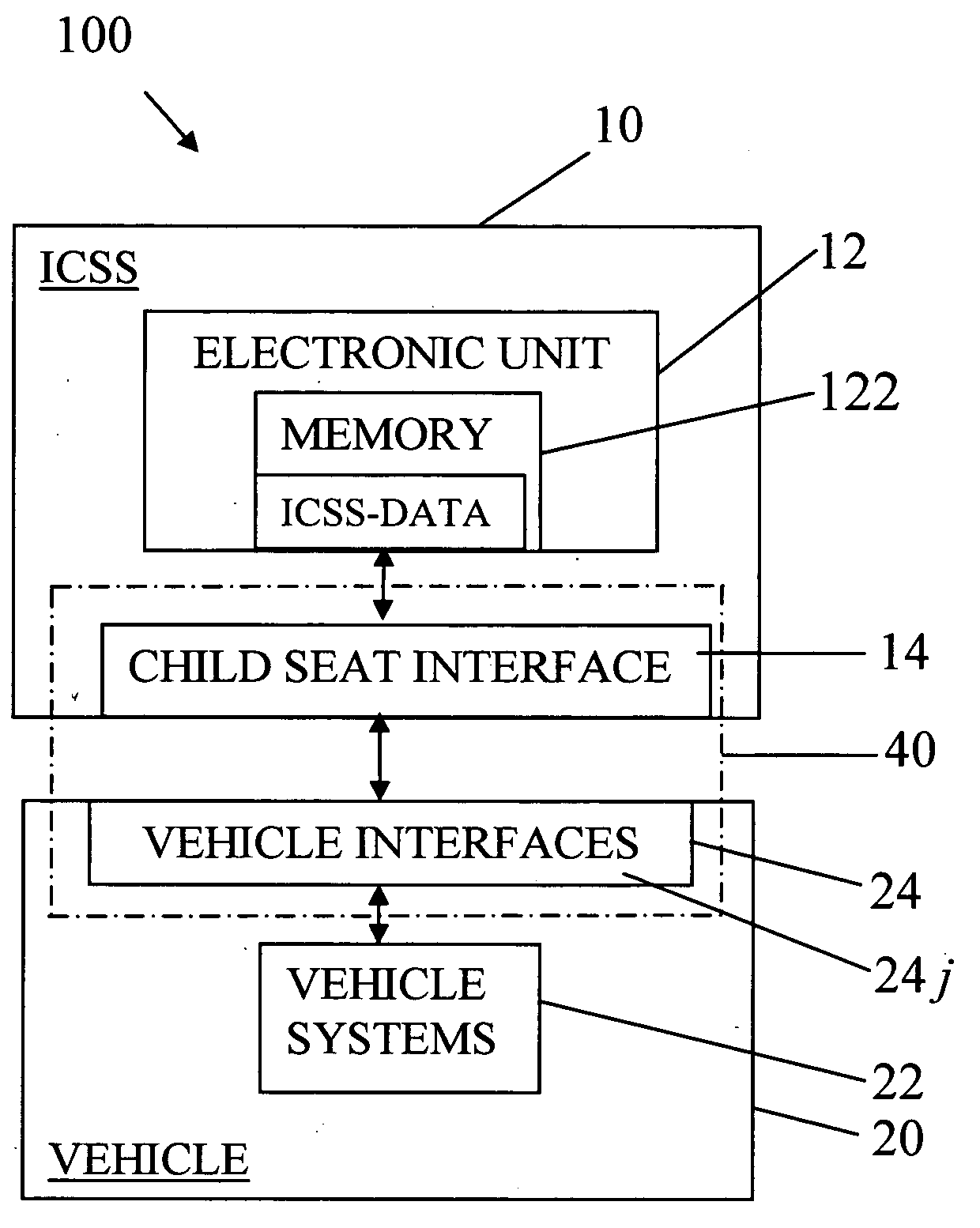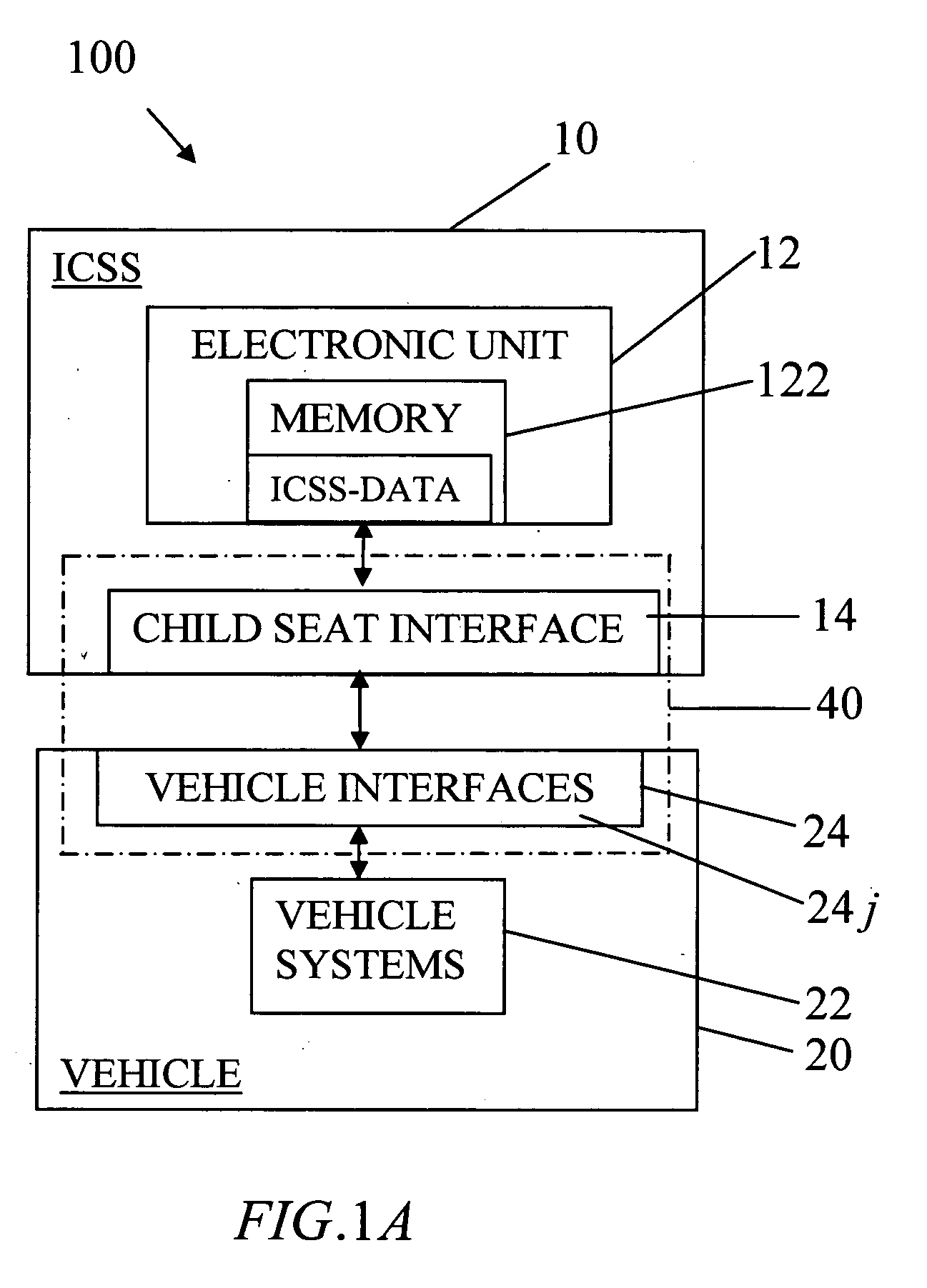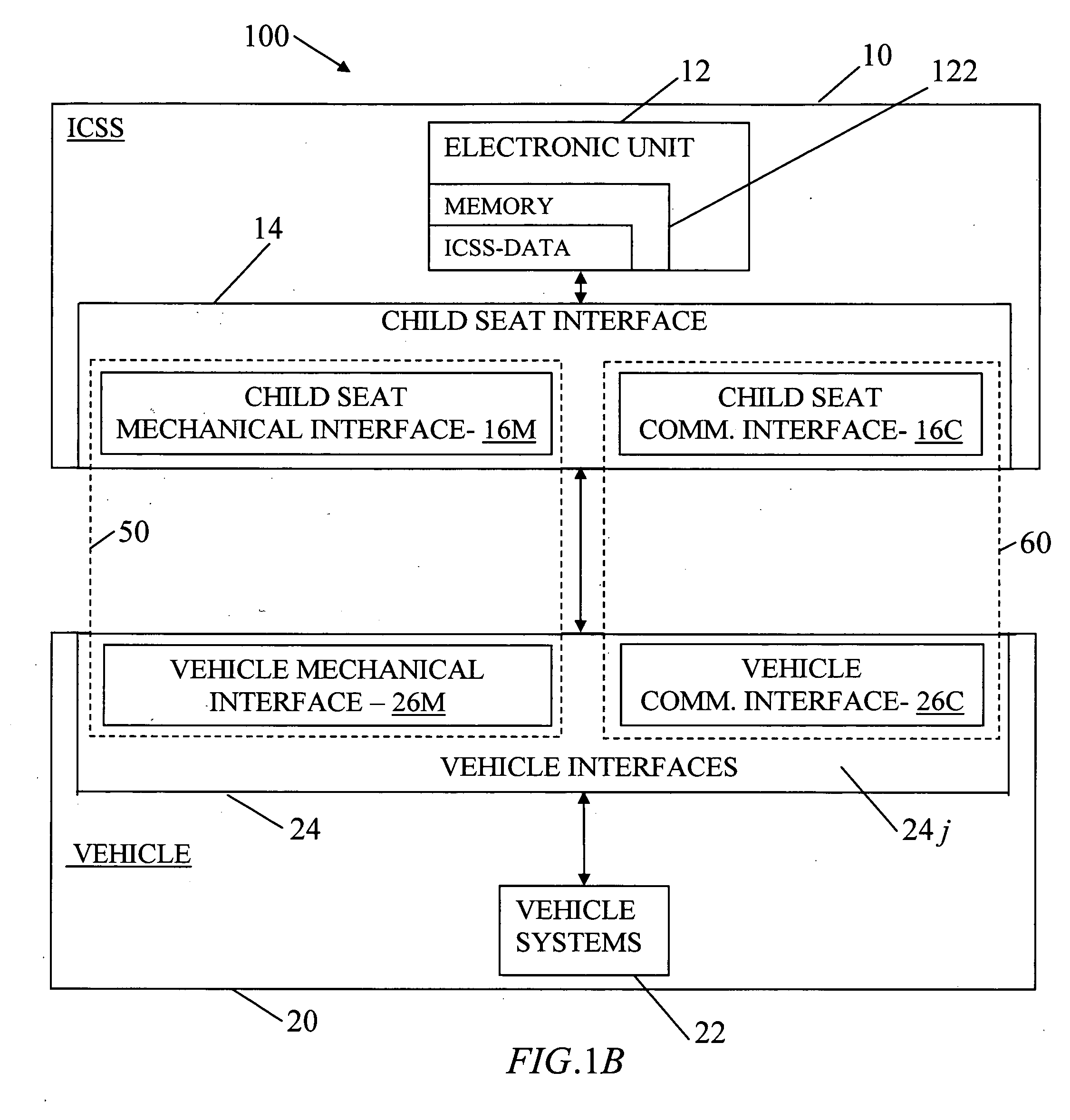Intelligent child safety seat
- Summary
- Abstract
- Description
- Claims
- Application Information
AI Technical Summary
Benefits of technology
Problems solved by technology
Method used
Image
Examples
Embodiment Construction
[0050]FIG. 1A and FIG. 1B are schematic illustrations of an embodiment 100 showing an intelligent child safety seat 10, or ICSS 10, and a vehicle 20. The ICSS 10 has an electronic unit 12 including a memory 122 loaded with ICSS-data, and a child seat interface 14. In parallel, the vehicle 20 has vehicle systems 22 and a vehicle interface 24. FIGS. 2 and 3, provide a more detailed description of the electronic unit 12, the memory 12 and ICSS-data, while the description for FIGS. 1A and 1B elaborate about establishing communication between the ICSS 10 and the vehicle 20. Both the child seat interface 14 and the vehicle interfaces 24 form a joint interface 40 that provides mechanical, electronic, and communication coupling between the electronic unit 12 of the ICSS 10 and the vehicle systems 22 operative in the vehicle 20. The term vehicle 20 applies to all means of transportation of passengers.
[0051]The joint interface 40, framed by a dash-and-dot line in FIG. 1A, refers jointly to bo...
PUM
 Login to View More
Login to View More Abstract
Description
Claims
Application Information
 Login to View More
Login to View More - R&D
- Intellectual Property
- Life Sciences
- Materials
- Tech Scout
- Unparalleled Data Quality
- Higher Quality Content
- 60% Fewer Hallucinations
Browse by: Latest US Patents, China's latest patents, Technical Efficacy Thesaurus, Application Domain, Technology Topic, Popular Technical Reports.
© 2025 PatSnap. All rights reserved.Legal|Privacy policy|Modern Slavery Act Transparency Statement|Sitemap|About US| Contact US: help@patsnap.com



